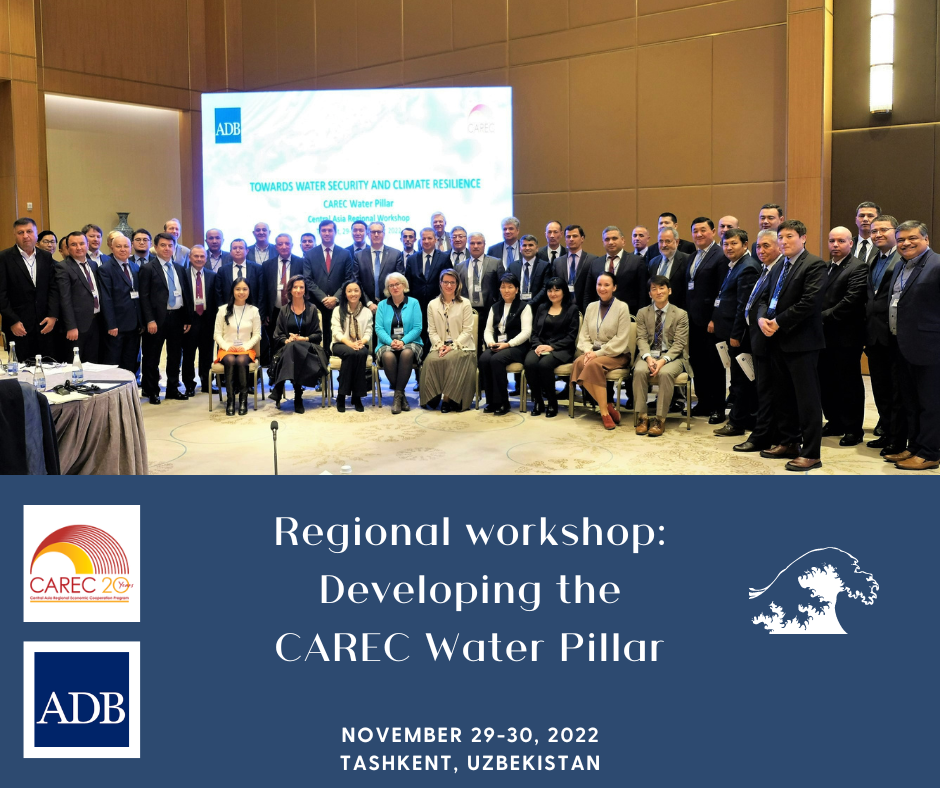On November 29-30, FutureWater participated and supported the organization of the Regional Workshop on Establishing the CAREC Water Pillar, in Tashkent, Uzbekistan. The Regional workshop served as a platform to discuss regional cooperation project activities that respond to the needs of the region where demand for water is increasing amid climate change, natural disasters and economies expand. It aimed to define a shortlist of priority activities for the Water Pillar and provide inputs on the composition and role of a Water Pillar sector working group.
“Effects of climate change are already being seen through the occurrence of more extremes of flood, drought and heat and greater unpredictability of river flows. In coordination with the regional programs of inter-governmental organizations and development partners, the CAREC Water Pillar can take its place in providing integrated support to the countries of the region”, said Deputy Director of ADB’s Uzbekistan Resident Mission Enrico Pinali.
“Managing the more variable annual and seasonal flow regimes will be more effective if relevant information can be shared openly and where platforms for dialogue on operations are mainstreamed into management systems. Evidence from other CAREC sectors and from water cooperation in other regions clearly demonstrate the value of a cooperative approach”, said Yasmin Siddiqi, Director, Environment, Natural Resources and Agriculture Division (CWER), Central and West Asia Department, ADB.
During a two-day workshop, participants attended working sessions on Water Pillar’s three blocks: 1): Climate resilient and productive water systems; 2): Sustainable water resources and water services; 3) Nexus solutions and cross sector learning. The expected outcome of the Workshop will be a set of components for inclusion in three initial project proposals.
This workshop was preceded by several virtual consultation meetings which shaped the framework for the Water Pillar under the CAREC 2030 Strategy and involved participants from water-related government agencies, regional organizations and institutes and development partners.



